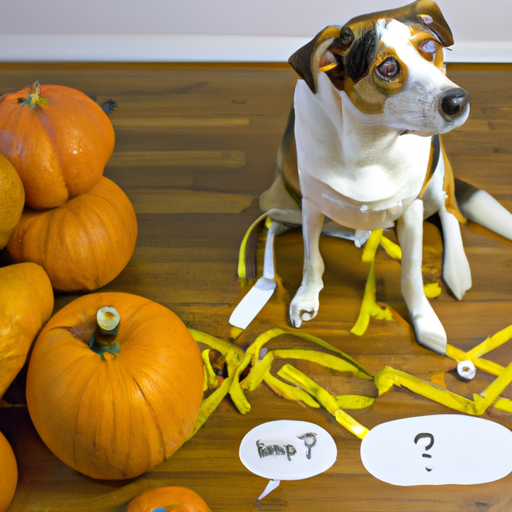As a caregiver, you’re always looking for the best ways to keep your pet healthy and happy. In your quest, you may have stumbled upon the idea of feeding your dog pumpkin. While it might seem like a strange food to incorporate into your pup’s diet, you’ll be surprised to learn that pumpkin can be a great addition, in the right amounts.
How Pumpkin Benefits Dogs
Pumpkin is a nutritious food that can offer numerous health benefits to your canine friend. It’s packed with vitamins and minerals that can improve your dog’s overall health.
High in Nutrients
Pumpkin is rich in essential nutrients that your dog needs. It’s packed with vitamin A, which is crucial for your dog’s vision. It also has vitamin C, which can help boost your dog’s immune system, and fiber, which aids in digestion.
Promotes Hydration
Pumpkin consists mostly of water, making it a good source of hydration. If your dog isn’t drinking enough water, feeding it pumpkin could help increase its water intake.
Supports Weight Management
If your dog needs to lose weight, pumpkin can be a great addition to its diet. It’s low in calories and high in fiber, which can help your dog feel full and satisfied without consuming excess calories.
How Much Pumpkin to Feed Your Dog
Now that you know the benefits of pumpkin for dogs, you might be wondering how much pumpkin you should actually feed your dog.
In general, you can follow this guideline:
- For small dogs (under 20 lbs): 1-2 tablespoons per day
- For medium dogs (20-50 lbs): 2-4 tablespoons per day
- For large dogs (over 50 lbs): 5-8 tablespoons per day
However, these are just guidelines, and the exact amount will depend on your dog’s size, weight, and overall health. Always consult with your vet before introducing new foods into your dog’s diet.
Potential Risks of Feeding Pumpkin to Dogs
While pumpkin can be beneficial for dogs, it’s not without its risks. Here are some things you need to watch out for:
Overfeeding
Overfeeding your dog pumpkin can lead to diarrhea or constipation. Remember, moderation is key.
Allergic Reactions
Some dogs may be allergic to pumpkin. If your dog shows signs of an allergic reaction, such as itching, swelling, or difficulty breathing, stop feeding it pumpkin immediately and seek veterinary care.
Pumpkin Products
Not all pumpkin products are created equal. Avoid feeding your dog pumpkin pie filling or anything that contains added sugars or spices.
Preparing Pumpkin for Your Dog
Feeding your dog pumpkin isn’t as simple as opening a can and serving it up. Here are some tips on how to prepare pumpkin for your dog:
- Choose the Right Pumpkin: Make sure to choose plain, canned pumpkin or fresh pumpkin. Avoid pumpkin pie filling or pumpkin with added sugars or spices.
- Cook the Pumpkin: If you’re using fresh pumpkin, make sure to cook it thoroughly before feeding it to your dog. Raw pumpkin can be difficult for dogs to digest.
- Serve in Moderation: Start by feeding your dog a small amount of pumpkin and gradually increase the amount if your dog tolerates it well.
FAQ
Can I feed my dog pumpkin seeds?
Yes, you can feed your dog pumpkin seeds. However, make sure they are unsalted and cooked before you give them to your dog.
Can dogs eat raw pumpkin?
Raw pumpkin can be difficult for dogs to digest, so it’s best to cook it first.
Can pumpkin help with my dog’s constipation?
Yes, the fiber in pumpkin can help with constipation. However, if your dog’s constipation persists, you should consult with a vet.
Can dogs have pumpkin every day?
While pumpkin is beneficial for dogs, it should not make up more than 10% of their daily diet.
Can dogs be allergic to pumpkin?
Yes, some dogs can be allergic to pumpkin. If you notice any signs of an allergic reaction, stop feeding your dog pumpkin and seek veterinary care.
In conclusion, pumpkin can be a healthy addition to your dog’s diet if served in moderation and prepared correctly. Always consult with your vet before introducing new foods to your dog’s diet.



